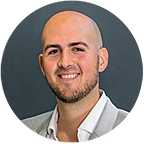Ideas in the Wild: How Bruce Hiland and Ted Kaufman are Helping Retirees Figure Out What Comes Next
Planning for retirement isn’t just about money.
Retirement has changed dramatically since our parents’ generation. People are living far longer, with far better health than ever before — both mentally and physically.
Instead of slowing down, people are leaving their jobs feeling ready to take on the world. They’re financially independent, active, and capable.
And then, suddenly, they have nothing to do.
Business friends drift away, the sense of purpose that comes with solving problems day in and day out fades into memory, and they start looking ahead to the next thirty or forty years wondering what on earth they’re going to do with all that time.
Bruce Hiland and Ted Kaufman’s new book Retiring? takes a profound look at 21st century retirement, helping readers plan all the nonfinancial aspects of what comes next. I recently caught up with Ted and Bruce to learn more about what inspired them to write this book.
What happened that made you decide to write the book? What was the exact moment you realized these ideas needed to get out there?
We were MBA students together at Wharton and reunited in Vero Beach, Florida. In recent years both of us noticed many friends and acquaintances not really enjoying retirement.
By nature, both of us are problem-solvers and, comparing notes, we concluded that while all had done their financial planning, they had spent little or no time thinking through what they would actually do once they retired. It seemed they had approached retirement like their parents, many of whom had worked for one or two companies, retired at 65 with a gold watch, and what followed was perhaps 10 years of retirement. In contrast, today people have worked several jobs, often retire earlier, and live considerably longer. The old retirement — a few sports, some travel, and walks with the grandchildren — does not begin to fill 25 or more years.
Our research showed that virtually all the available retirement advice focused on money when, in fact, building a successful retirement demands equal attention to the non-financial issues. One day over our weekly cup of 50-cent Burger King, we recognized what we were finding could really help people. Then Ted said, “You know, we ought to write a book.”
What’s the biggest lesson you’ve each learned going through your retirement journeys?
The biggest lesson we both learned is to apply what you learned as you planned your working life. Think ahead, do your “homework” (i.e. research), and talk to and listen to others — most importantly, your partner. As you start to think about your next chapter, you’re likely in the most demanding position in your career. Considering major changes in your life, while often positive and exhilarating, is always difficult. Planning for retirement will likely be one of your most challenging experiences but it’s worth every bit of the effort.
How will you continue to apply these lessons in your lives moving forward?
Re-read our book each year. More seriously, regularly revisit your plan. Ted reviewed his plan monthly during the first year then quarterly until year 5 when he moved to an annual review.
Bruce was comfortable with an annual checkup but, as well, informally monitored events as they happened. Our conclusion: at least an annual review but more frequently if you experience a major change (e.g. a health event). It’s pretty straightforward: just think about what’s changed and then assess whether your decisions still make sense. Pay attention and stay flexible.
